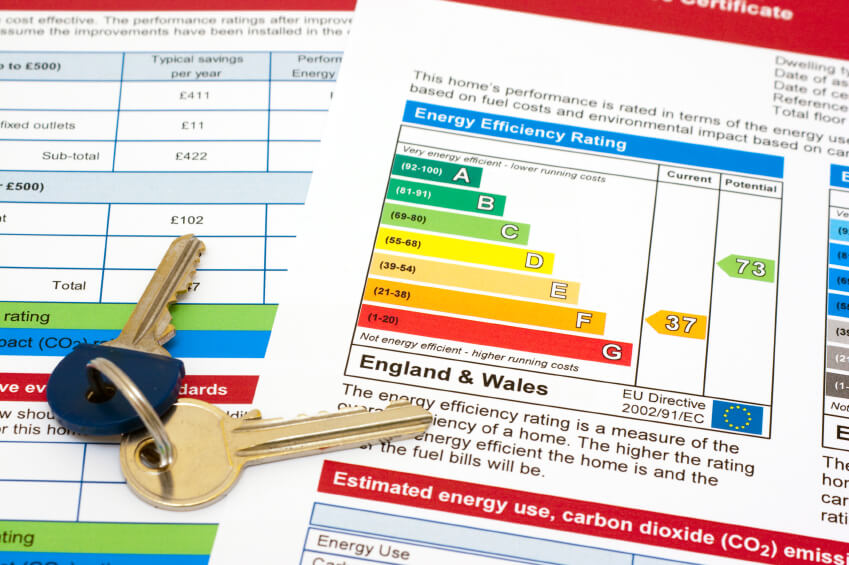The buy-to-let industry is known for its stringent regulations and landlords should now be planning for the next phase of legislation which aims to improve the energy efficiency of rental properties. Changes to Energy Performance Certificate (EPC) requirements come into force from 1st April 2018, when properties rented out privately in England and Wales will have to have a minimum energy performance rating of ‘E’. The new rules will apply to new tenancies and renewals from 1st April 2018 and for existing tenancies from 1st April 2020. The move aims both to help tenants reduce their fuel bills and generally to cut carbon emissions.
Rental properties will need to achieve a Band ‘E’ rating or higher
The regulation changes, which have now been finalised by the Department of Energy and Climate Change (DECC), will make it unlawful to let residential and commercial properties with an EPC rating lower than ‘E’, with civil penalties of up to £4000 possible for failing to comply. Therefore properties that fall below this rating should be upgraded to meet the minimum standards. After April 1st 2018 a property with a lower rating cannot be marketed, leading to void periods until measures are taken to improve its energy efficiency. Band ‘A’ properties are classified as being the most energy efficient possible while Band ‘G’ properties are the least energy efficient.
From April 2016, tenants have been able to request energy saving improvements from their landlords to ensure their rental properties are at least an ‘E’ rating. Nearly one in ten properties in Britain is believed to fall into the least energy efficient Bands ‘F’ and ‘G’ and tenants renting these homes (estimated to be around one million tenants) could be potentially spending an extra £1000 per year heating their ho mes.
mes.
Energy efficiency enhancing measures can be simple
New properties will almost certainly comply with the requirements to reach at least an E rating but landlords with older properties should consider various measures that could be implemented to improve their rental property’s rating. These could include installing cavity wall insulation and increasing loft insulation. It could also mean installing double glazed windows, floor insulation and possible a new boiler. Other energy enhancing features could
include solar photovoltaic panels and solar water heating. Many upgrades are comparatively inexpensive and simple to arrange. In fact, DECC experts estimate that 40% of rented properties could be lifted into Band ‘E’ or higher simply by installing or increasing loft insulation.
A reminder about other new regulations for landlords
New licensing regulations for rental properties in some London Boroughs
This is also a good time to remind landlords that some London Boroughs are introducing new regulations requiring rental properties to be licensed in order to improve standards in the private rented sector and ensure properties are well maintained. The regulations vary between boroughs but in general rental properties will need to reach certain standards in terms of gas safety, electrical safety, fire safety and the quality of furnishings. Currently, some rental properties in the London Boroughs of Newham, Ealing, Fulham and Hammersmith, Tower Hamlets, Lewisham, Barnet and Redbridge are affected.
Professional property management makes owning a buy-to-let property simpler
New buy-to-let regulations are introduced regularly and this can prove a headache for landlords, particularly those based overseas. Using a professional property management service can simplify matters and ensure a rental property complies with all legislation. For more information call us on 020 7319 9740 or email info@benhams.com .
International offices
















 mes.
mes.